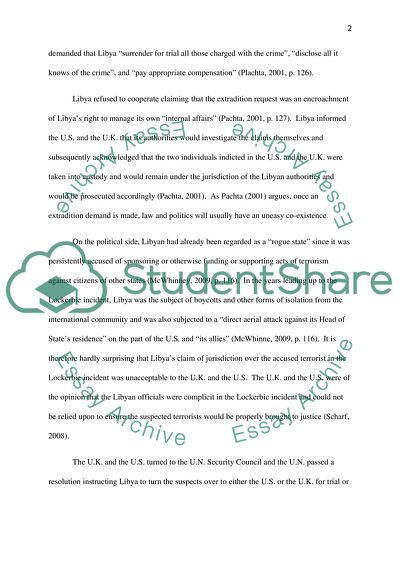Cite this document
(Criminal Justice Responses to Acts of International Terrorism - The Lo Case Study, n.d.)
Criminal Justice Responses to Acts of International Terrorism - The Lo Case Study. https://studentshare.org/law/1800224-internationaltterrorism
Criminal Justice Responses to Acts of International Terrorism - The Lo Case Study. https://studentshare.org/law/1800224-internationaltterrorism
(Criminal Justice Responses to Acts of International Terrorism - The Lo Case Study)
Criminal Justice Responses to Acts of International Terrorism - The Lo Case Study. https://studentshare.org/law/1800224-internationaltterrorism.
Criminal Justice Responses to Acts of International Terrorism - The Lo Case Study. https://studentshare.org/law/1800224-internationaltterrorism.
“Criminal Justice Responses to Acts of International Terrorism - The Lo Case Study”. https://studentshare.org/law/1800224-internationaltterrorism.


